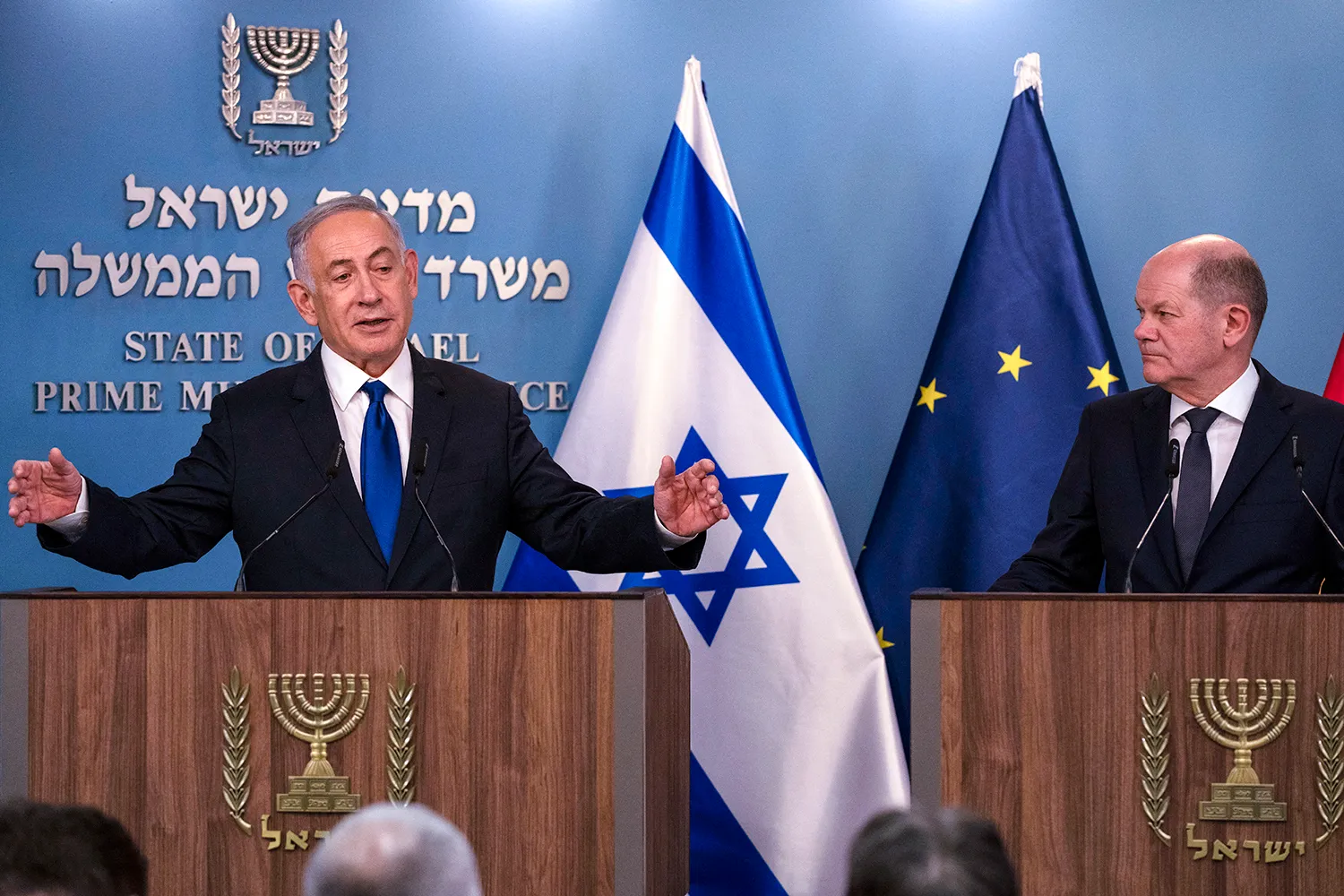Germany’s continued support for Israel, especially in the context of the Gaza conflict, has sparked both domestic and international criticism. Amid recent statements by German Foreign Minister Annalena Baerbock defending Israel’s military actions, UN representatives and various groups within Germany have questioned the ethical and legal implications of the country’s steadfast alliance. Many argue that Germany’s position, rooted in its historical legacy, raises broader questions about its responsibilities for human rights and international justice.
Germany’s Historical Legacy and Its Ties to Israel
Germany’s commitment to Israel is often attributed to its historic responsibility for the Holocaust, a stance that has driven consistent political and economic support for Israel. This commitment was reinforced recently by Chancellor Olaf Scholz, who pledged unwavering support to Israel following escalations in the Gaza conflict. While Germany sees this relationship as part of a necessary reckoning with its past, critics argue that this allegiance may overlook the humanitarian costs borne by Palestinian civilians in Gaza.
UN Voices Concerns Over Human Rights Implications
The UN special rapporteur on Palestine, Francesca Albanese, responded sharply to Germany’s stance, cautioning that such a political position has “legal implications” if it implies supporting potential international crimes. This response highlights a growing call for Germany to reassess its stance and to balance its support for Israel with a commitment to broader human rights principles.
A Nation Divided: Public and Governmental Responses
Germany’s pro-Israel policies, including recent restrictions on pro-Palestine protests, have drawn criticism within its borders, particularly from minority groups and activists. Restrictions include police crackdowns on demonstrations and bans on symbolic expressions like the keffiyeh, sparking debate on freedom of expression and state neutrality. Critics argue that Germany’s focus on its past guilt may obscure the need for a balanced foreign policy that equally respects the rights of Palestinians.
Calls for Broader Historical Reflection
Analysts argue that Germany’s historical reckoning, often centered on the Holocaust, has primarily overlooked its colonial past and its history of racial violence. This selective memory, some say, has permitted a narrow political stance that may ignore contemporary human rights concerns. As Germany continues to navigate its complex relationship with Israel, both international and domestic pressure may shape how it balances historical responsibility with its role on the global stage.
For more reporting like this, please follow Newsdecensored on your favorite social media sites and bookmark the website. Thank you for your interest and support.















